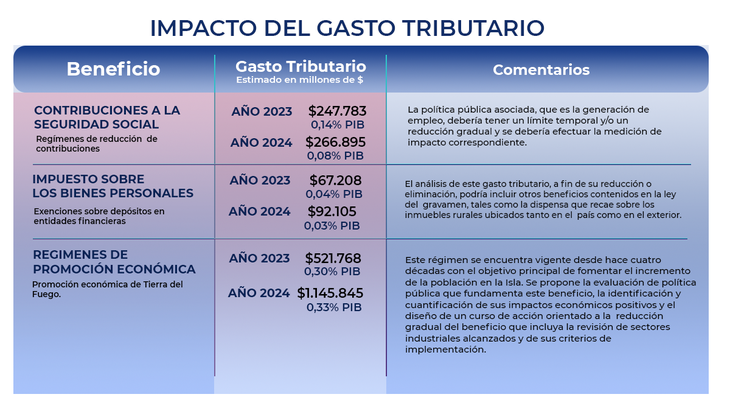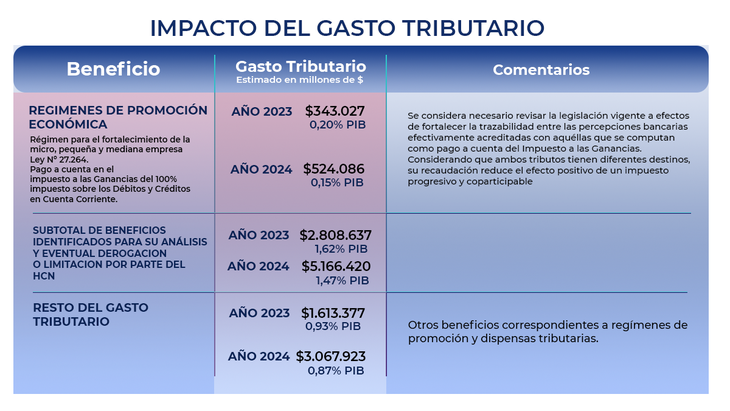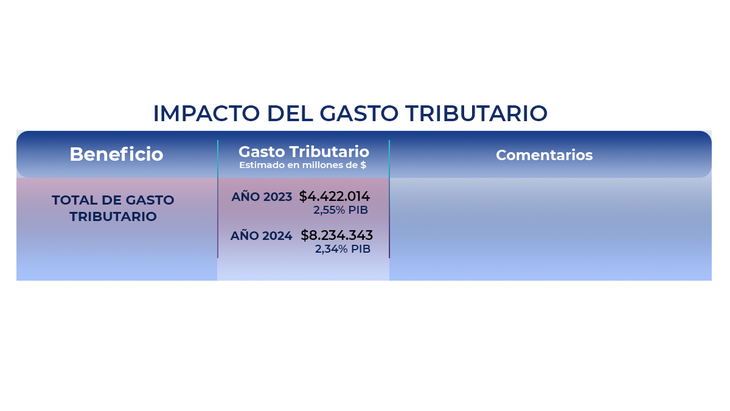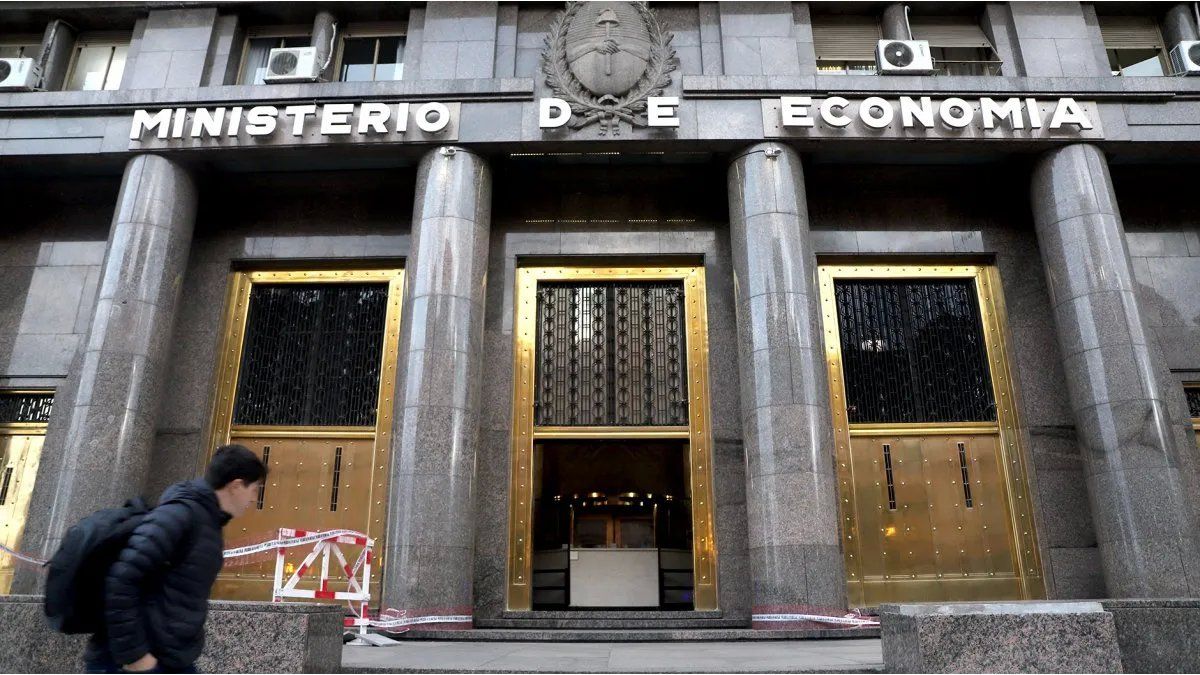The Government plans to reach a primary imbalance (before interest payments) of 1.9% of GDP in the current year, in accordance with what was stated in the agreement with the International Monetary Fund. The authorities point out that this is possible because tax collection is evolving favorably.. By 2024, and also in accordance with the IMF, a reduction in the deficit is projected to 0.9%.
Recovery
Strongly impacted by the drought that affected the agricultural sectora 2.7% drop in the level of economic activity is projected for the current year, a figure that is below the 3% shown by the median of the survey among economists carried out by the Central Bank in the Survey of Market Expectations (REM).
But the official forecast contemplates a return to growth in 2024 with a projected 2.5% rise in GDP. The official forecast is that it will go from a year that ends recessively to an expansive one, once the unfavorable weather conditions that affected the countryside have been overcome.
In this way, an increase in exports is also expected, which would improve income from duties. The resources generated by foreign trade would also be reinforced by the PAIS tax that began to be applied on imports last August.
Fiscal expenses, on the other hand, would also be reduced because it is contemplated to continue with the process of rearranging rates.
Regarding inflation, the authorities carried out the calculations “with caution”, according to official sources, given the uncertainty derived from the electoral definition.. 2023 is expected to end with a price increase of 135%, a lower estimate than expected by the REM (169%), and 70% is projected for next year.
Regarding the exchange rate, the project contemplates that it will go from the current $350 to $367 at the end of December 2023. Meanwhile, at the end of next year it would be at $600 resulting from the application of a crawl policy aligned with inflation, according to the Ministry of Economy.
Separate
In compliance with the Financial Administration Law, this Friday the Government will send the draft Budget Law 2024 to Parliament. The initiative will include an offprint to be analyzed by legislators, to which it agreed Ambitwhose objective is to propose “the review of a set of expenses and tax benefits that different companies and sectors have and that cause the State to lose almost 5 points of GDP”indicate in the Ministry of Economy.
Among the issues on which economic driving focuses are:
- The exemption from payment of income tax for judges, civil associations, foundations, mutual societies and cooperatives;
- The reduction of VAT on works of art;
- Social security contribution regimes;
- The exemption of liens on rural properties,
- The Economic Promotion Regime of Tierra del Fuego.
The primary fiscal deficit estimated in the draft budget for the Next year it is 0.9% of GDPbut “Congress is invited to make the effort to review this group of economic benefits to companies and sectors to achieve in 2024 that the year-end is with 1 point of GDP surplus.”
As it had already done in the draft budget for 2023, now the Ministry of Economy once again raises the need to analyze “various tax benefits, differential treatments and budget subsidies that particularly favor large firms and corporations and that have a significant negative impact on the sustainability of public accounts by generating permanent reductions in revenue.”
Tax expenses refer to the amount of income that the treasury fails to receive when granting tax treatment that deviates from that generally established in tax legislation, with the aim of benefiting or favoring the development of certain activities, areas, taxpayers or consumptions.
It implies, therefore, explains the official document, a transfer of public resources implemented through a reduction of tax obligations in relation to a reference tax, rather than a direct expense.
In this regard, he states that “The enactment of laws that reduce tax spending is a way that would strengthen the resources of the public sector, have greater financing for the development of priority public policies and consolidate a robust primary surplus result”.
The estimate from the Treasury Palace shows that tax expenses and other tax benefits with budgetary impact implies permanent collection losses of approximately 4.72% of GDP in 2024.
Bills
The Ministry of Economy estimates that the total Tax expenditures for the year 2024 amount to 2.34% of GDPwhich is grouped into two main components: those derived from tax regulations (1.73% of GDP) and those derived from Economic Promotion Regimes (0.61% of GDP).
To facilitate the analysis of legislators, the offprint of the Ministry of Economy presents a selection of a set of tax expenditures, which account for 62.7% of the total (1.47% of GDP) on which it makes comments:
BUDGET 2024 IMPACT_01.png
BUDGET 2024 IMPACT_02.png

BUDGET 2024 IMPACT_03.png

BUDGET 2024 IMPACT_04.png

Rural goods
Among the topics to be considered, the document is the exemption of rural properties from the Personal Property Tax, which represents 0.48% of GDP.
In this sense, he proposes that “it would be necessary to subject legislative evaluation reasonableness to maintain the validity of this exemption in light of the contributory capacity, its profitability and access to other benefits in the form of subsidies, promotions, etc.” It specifies that the ownership of rural properties located abroad is concentrated in 450 people residing in the country.
Directors
It also proposes “focusing attention on the exemption from the Value Added Tax that falls on the fees of Company Directors, which will represent, in 2024, 0.29% of GDP.”
In this case, it indicates that a consideration similar to that formulated for the exemption of rural properties would apply in terms of evaluating “the possibility of its legislative repeal based on objective indicators regarding the benefit of this dispensation and the contributory capacity of its recipients.”
Source: Ambito




